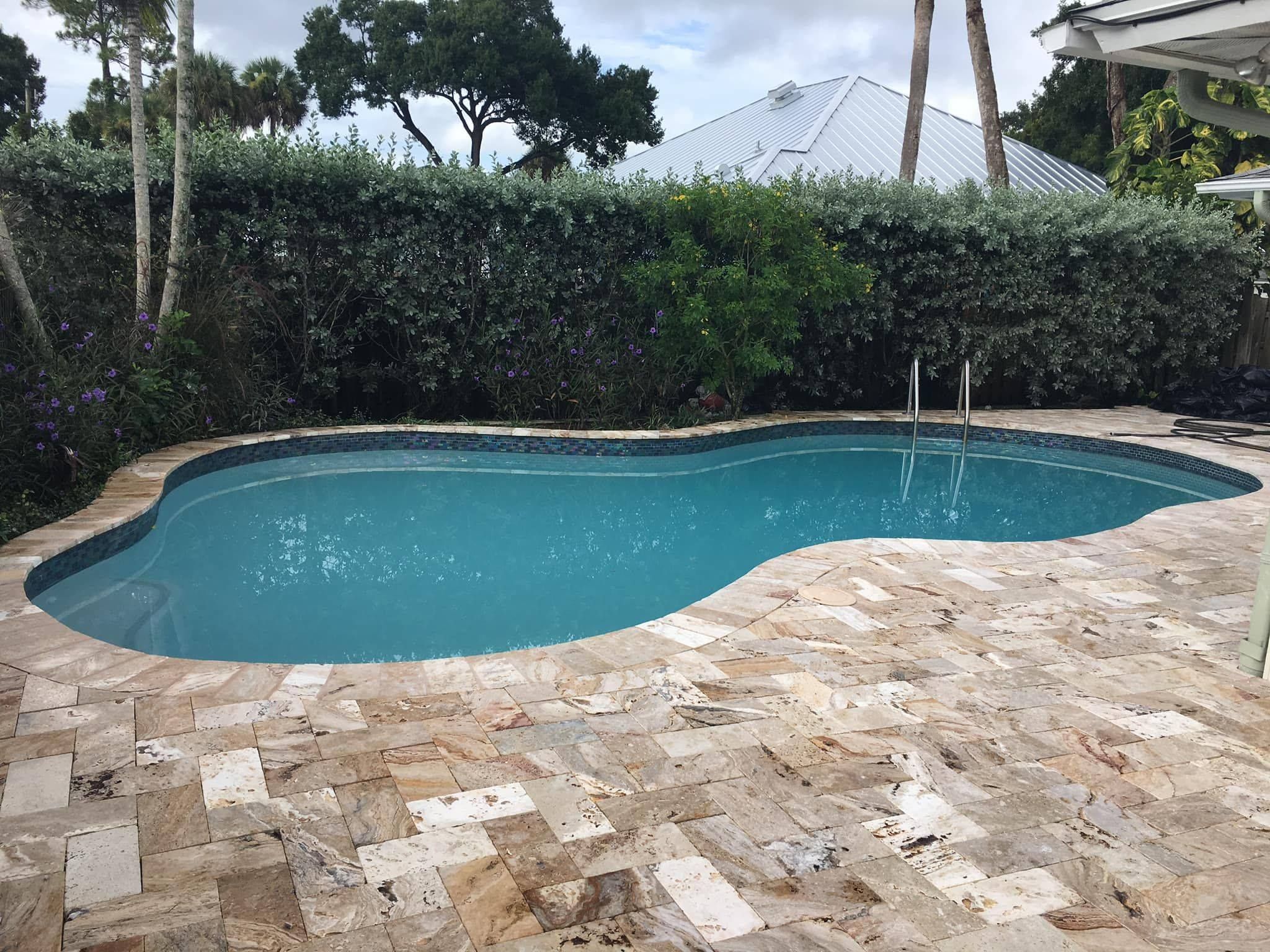Travertine pavers are a timeless choice for outdoor spaces, known for their natural beauty, durability, and ability to stay cool underfoot. But one of the most common questions homeowners ask is: “Should I seal my travertine pavers every year?”
The short answer is: not always—but regular sealing is important if you want to preserve the look and longevity of your pavers. Let’s break it down.
Why Sealing Matters for Travertine Pavers
Travertine is a natural stone with small pores that can absorb water, dirt, and spills. Over time, unsealed pavers may:
-
Stain from oils, food, or plant debris
-
Fade due to sun exposure
-
Accumulate mold, mildew, or efflorescence (white mineral deposits)
-
Lose their natural luster
A high-quality sealer helps protect against these issues by creating a barrier that makes cleaning easier and preserves the stone’s color.
How Often Should You Seal?
Whether or not you need to reseal every year depends on several factors:
1. Exposure to Elements
-
High-traffic or outdoor kitchens/pool areas: May need resealing annually because of heavy use, water, and spills.
-
Low-traffic patios or walkways: Can often go 2–3 years before resealing.
2. Type of Sealer Used
-
Topical sealers (glossy finish): Typically wear out faster and may require annual resealing.
-
Penetrating sealers (matte/natural look): Last longer—often 2–5 years depending on quality.
3. Local Climate
-
Wet, humid, or freeze-thaw regions put more stress on stone and sealer, shortening its lifespan.
-
In drier climates, pavers may last longer between treatments.
Signs Your Pavers Need Resealing
You don’t have to guess—here are some easy ways to tell:
-
Water no longer beads on the surface.
-
The stone looks dull or chalky.
-
Stains are appearing more easily than before.
-
You notice mold or mildew growth.
If you see these signs, it’s time to reseal, even if it hasn’t been a full year.
Tips for Proper Maintenance
-
Clean regularly: Sweep and rinse with mild soap and water to prevent buildup.
-
Spot clean spills: Wipe up oils, wine, or food quickly to avoid stains.
-
Use the right products: Avoid harsh cleaners that can etch or damage travertine.
-
Test first: Pour a small amount of water on the surface. If it soaks in quickly, resealing is due.
Final Verdict – Should I seal my travertine pavers every year?
You don’t necessarily need to seal your travertine pavers every year—but you should inspect them annually. Some high-traffic areas may require yearly sealing, while others can go longer. Investing in a good-quality sealer and staying on top of maintenance will keep your travertine looking beautiful for decades.

